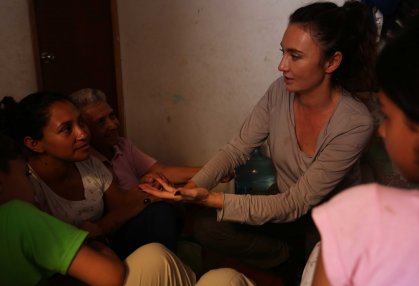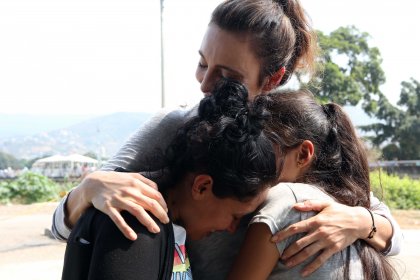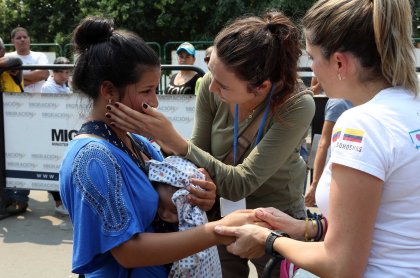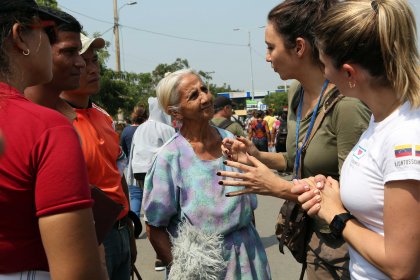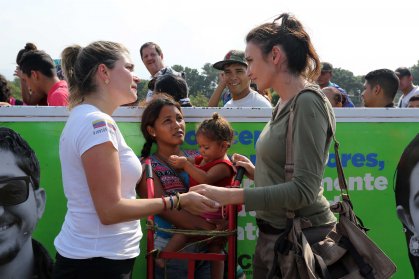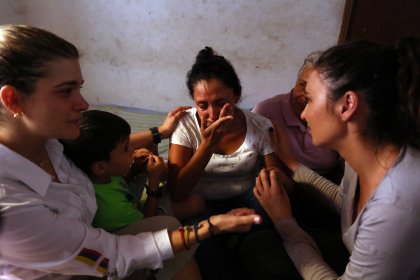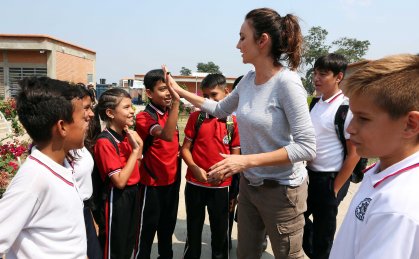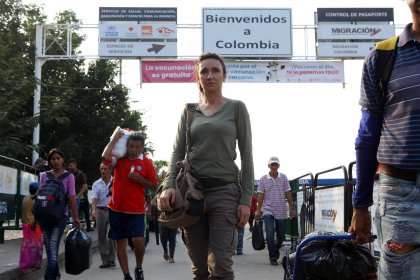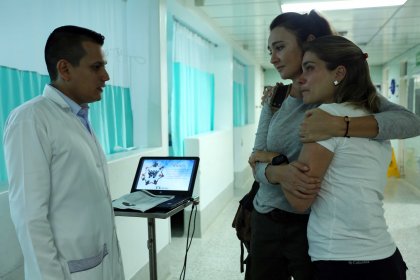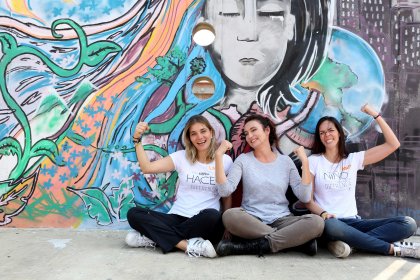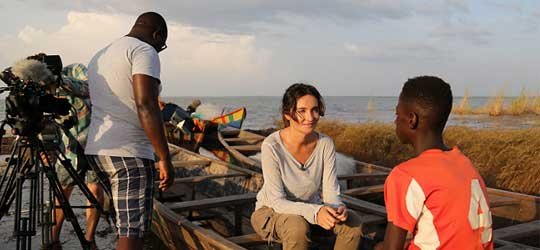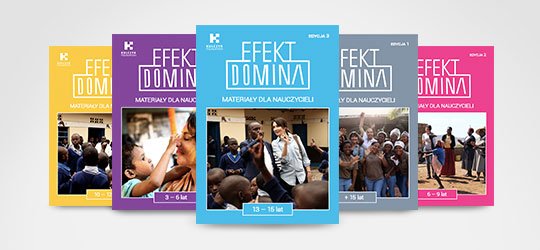COUNTRY / PROBLEM
Venezuela is a country that, as a result of dictatorship, has been plunged into a deep humanitarian crisis. About 90% of the population live on the verge of extreme poverty. Shops have run out of food. Some schools and hospitals have closed down. A humanitarian crisis on such a large scale, combined with the current political crisis, can turn into a civil war.
The Simón Bolívar bridge located on the border between Venezuela and Colombia, called the bridge of desperation by the media, has become a symbol of the exodus of refugees from Venezuela. At present, the Colombian-Venezuelan border is where the largest migration movement in Latin America takes place. In January 2019, when this episode of the ‘Domino Effect’ was filmed, tens of thousands of Venezuelans crossed the Simón Bolívar bridge every day.
The largest number of Venezuelan refugees pass through the city of Cúcuta in Colombia. For the majority, it is a stop on their way, but some try to start a new life here.
Many Venezuelan refugees are headed to the capital of Colombia, Bogotá. To arrive there, they have to travel more than 500 km. Some go further, to Ecuador, Perú, or even Chile. Part of the road leads through the Andes. Since most people cannot afford any transportation, they have to walk.
ORGANISATION
The Venezuelan NGO Comparte por una vida (CPUV) carries out feeding programmes in schools and hospitals. One of the facilities participating in CPUV’s feeding programmes is the La Frontera school, where more than 500 Venezuelan children learn. Those most in need receive support from the organisation, thanks to which 100 children can have a meal at school. It is their basic meal during the day, often their only meal during the day.
PROJECTS
Kulczyk Foundation provided Comparte por una vida with funds for:
- Armando Reverón (Venezuela) school feeding programme,
- La Frontera (Colombia) school feeding programme,
- support for refugees from Venezuela in Colombia – beneficiaries of CPUV Colombia,
- a shop located by the Cúcuta-Pamplona road, providing assistance to Venezuelan refugees.
“I came here with a suitcase packed full with illusions, hope and faith”, confesses María, one of the many people who had to abandon their homes.
“I had to leave my entire family and my friends behind, and start a whole new life. Everything was supposed to be different. And by different, I mean better”, says Jheyde, María’s daughter.
“We would rummage through the rubbish for any secondary raw materials, any waste that could be sold. I smuggled goods for sale across the border, sold sweets, lollipops. We were hungry, we slept anywhere and everywhere, on bare ground. We had no money, my brother and I, so we had to beg on the streets. We’ve experienced a very difficult life”, says Jheyde, Maria’s daughter.
“This is a humanitarian crisis. Our children are starving. Our children are dying. Our mothers have nowhere to go to give birth. They have no access to prenatal testing”, notes Elia Lovera, founder of the Comparte por una vida Colombia organisation.
WATCH THE FILM


